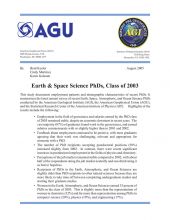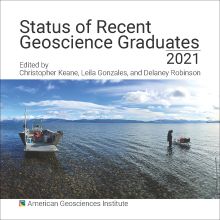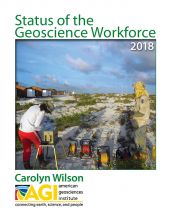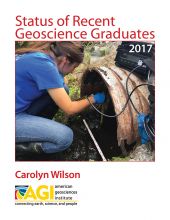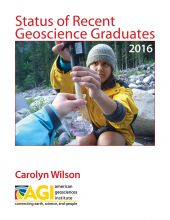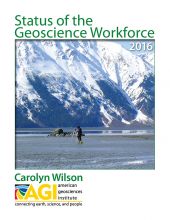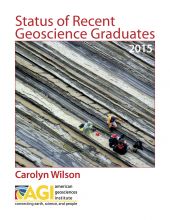This study documents employment patterns and demographic characteristics of recent PhDs. It summarizes the latest annual survey of recent Earth, Space, Atmospheric, and Ocean Science PhDs conducted by the American Geological Institute (AGI), the American Geophysical Union (AGU), and the Statistical Research Center of the American Institute of Physics (AIP).
Highlights of the results include the following:
- Employment in the field of geoscience and salaries earned by the PhD class of 2003 remained stable, despite an economic downturn in recent years. The vast majority (87%) of graduates found work in the geosciences, and earned salaries commensurate with or slightly higher than in 2001 and 2002.
- Feedback about employment continued to be positive, with most graduates agreeing that their work was challenging, relevant and appropriate for someone with a PhD.
- The number of PhD recipients accepting postdoctoral positions (58%) increased slightly from 2002. In contrast, there were recent significant increases in postdoctoral employment in the fields of physics and chemistry.
- Perceptions of the job market remained stable compared to 2002, with about half of the respondents rating the job market neutrally and one-third rating it as bad or hopeless.
- Recipients of PhDs in the Earth, Atmospheric, and Ocean Sciences are slightly older than PhD recipients in other natural sciences because they are more likely to take time off between completing undergraduate studies and starting their graduate studies.
- Women in the Earth, Atmospheric, and Ocean Sciences earned 33 percent of PhDs in the class of 2003. This is slightly more than the representation of women in chemistry (32%) and far more than representation among PhDs in computer science (20%), physics (19%), and engineering (17%).

